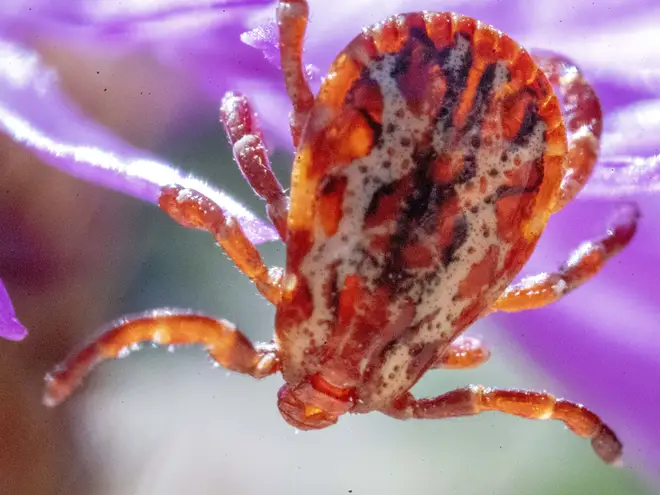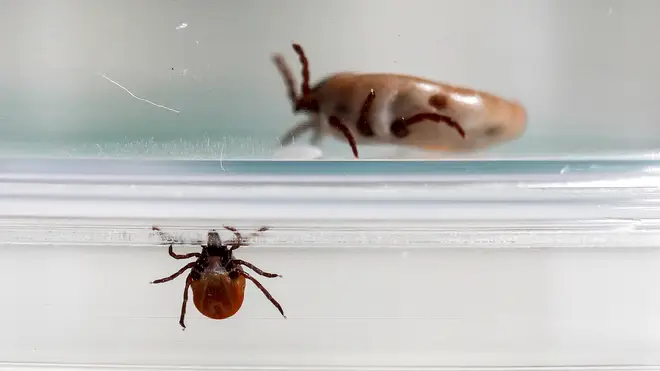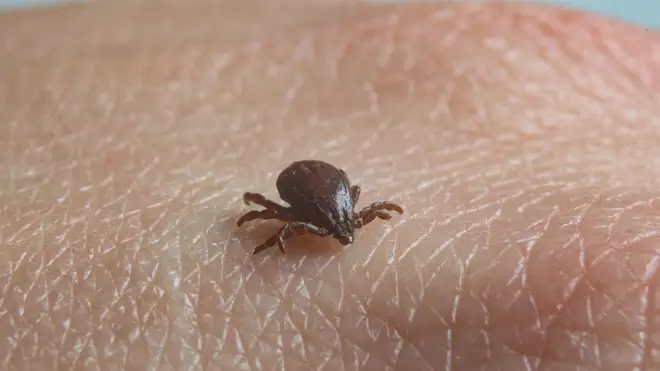
Nick Ferrari 7am - 10am
31 July 2020, 18:46

Two people have been hospitalised after contracting rare tick-borne infections, Public Health England has confirmed, as they issued a warning to be "tick aware."
Health officials confirmed the diagnosis of a case of babesiosis and a probable case of tick-borne encephalitis (TBE).
This is the first record of a UK-acquired case of babesiosis and the second case of TBE being acquired in the UK, PHE said.
Babesiosis is caused by a parasite which infects red blood cells, while TBE is a viral infection that affects the central nervous system.
Officials said cases of the infections are rare and the risk of being infected remains very low.
PHE said both patients have been transferred to hospital, where they are receiving appropriate treatment and are expected to make a full recovery.

Most people with babesiosis will have either no symptoms or mild symptoms of infection, but people with weakened immune systems can become very ill and present with flu-like symptoms such as fever, chills, muscle ache, fatigue, and jaundice.
Around two-thirds of people with TBE infections will have no symptoms, and, for those who develop symptoms, there are often two phases.
The first is associated with flu-like symptoms such as fever, headache and fatigue, which can then progress to a more serious second phase which involves the central nervous system, which can lead to meningitis, encephalitis and paralysis.
This year, PHE has surveyed sites in Devon close to where the person with babesiosis lives, collecting and testing hundreds of ticks, and all tested negative for the parasite which causes babesiosis.

PHE also tested deer blood samples from Hampshire in areas near where the person with probable TBE lives and they have shown evidence of likely TBE virus infection, which matches similar results found in 2019.
The risk of babesiosis or TBE for the general public is very low, but a number of infections can develop following a tick bite, including Lyme disease, and there are things people can do to reduce the risk of being bitten by ticks.
PHE said it is important to "be tick aware" and take precautions such as keeping to footpaths and avoiding long grass, wearing appropriate clothing, considering the use of repellents containing Deet, and making it a habit to carry out a "tick check".
If you have been bitten by a tick, it should be removed as soon as possible using fine-tipped tweezers or a tick removal tool.
Dr Katherine Russell, consultant in the emerging infections and zoonoses team at PHE, said: "It is important to emphasise that cases of babesiosis and TBE in England are rare and the risk of being infected remains very low.
"Lyme disease remains the most common tick-borne infection in England.
"Ticks are most active between spring and autumn, so it is sensible to take some precautions to avoid being bitten when enjoying the outdoors.
"Seek medical advice if you start to feel unwell after a tick bite."